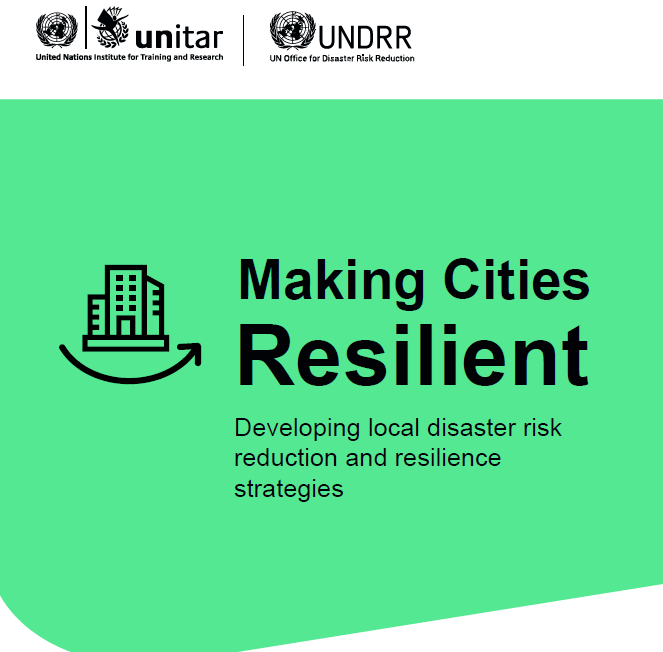
Making Cities Resilient: Developing Local Disaster Risk Reduction and Resilience Strategies (Winter Edition, Accessible Course)
United Nations Office for Disaster Risk Reduction (UNDRR)
This e-learning course aims to strengthen the capacities of government officials, especially those at the local level, and disaster management professionals to design and implement plans and programs that reduce disaster risk and enhance resilience.
At the end of the course, participants will be able to:
- Raise awareness about the Making Cities Resilient (MRC) Campaign;
- Identify initiatives and best practices on how to integrate disaster risk reduction and climate change adoption into urban planning;
- Assess the risk management situation in their cities by using a tool;
- Develop a safe and resilient country/city action plan;
- Analyze the purpose, the goals, and the outcome of the Sendai Framework for DRR.
Over the past 20 years, disasters have affected billions of people, caused USD$ trillions of damage, and killed millions of people. Disasters have affected people living in developing countries and, in particular, the most vulnerable communities within these countries.
Particularly in the context of increased urbanization, the urban risk continues to rise. The vulnerability of cities to disasters is growing especially as poor people settle in high-risk urban areas. Unfortunately, the planning and development of cities have given little consideration to the consequences of hazards such as earthquakes, hydro-meteorological risks, and others. The implication of this reality is the need for countries to focus on creating a safer world for urban dwellers and developing a series of innovative approaches to build resilience.
On the basis of these needs, UNITAR in partnership with UNDRR developed the e-learning course “Making Cities Resilient: Developing Local Disaster Risk Reduction and Resilience Strategies - Accessible Edition”.
Module 1: Disaster Risk Reduction concepts and Introduction to Current Trends in Urban Risk
Module 2: Implementing the Sendai Framework for Disaster Risk Reduction (2015 - 2030)
Module 3: Introduction to Making Cities Resilient (MCR) Campaign Tools
Module 4: Mainstreaming DRR into sectoral Programmes for Socio-Economic Development (Part 1)
Module 5: Mainstreaming DRR into sectoral Programmes for Socio-Economic Development (Part 2)
Module 6: Developing, Implementing, Monitoring and Evaluating Safe and Resilient Action Plans
This 6-module course includes interactive lessons that introduce the participant to the conceptual foundations of disaster risk reduction and urban resilience. The learning materials are presented through various media, such as text, graphs, images and video material, which contribute to better retention and enhance the learning process.
Participants engage in a set of assessment quizzes, discussion forums, webinars with renowned experts and practical activities to facilitate interaction and experience sharing.
The course is open to city and local government officials, disaster management professionals, and representatives from academic and training institutions working on disaster risk reduction and sustainable development.
This new edition is accessible for persons with visual and hearing impairments.
A certificate of completion will be issued to participants who achieve a minimum total score of 70%. A certificate of participation will be issued to participants who complete all mandatory activities but achieve a final score inferior to 70%.
BONUS: Those students who perform excellent results will be rewarded by being included in the “List of Resource Persons” of UNDRR GETI. As a resource person, you will have the opportunity of being consulted and invited to several workshops/ events.

